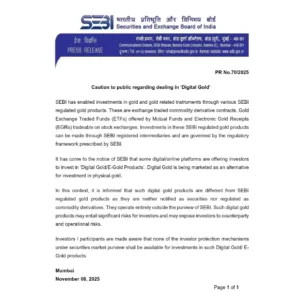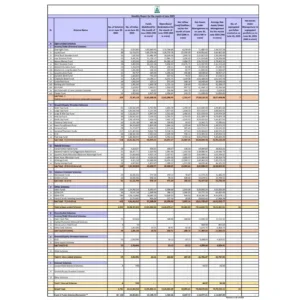In August 2024, Asian bond markets experienced a significant boost, marking the fourth consecutive month of attracting foreign capital. This trend is largely fueled by expectations that the U.S. Federal Reserve would ease its monetary policy, potentially beginning with a significant rate cut in September.
Asian bonds saw foreign investments for the fourth month in a row in August, as investors are hopeful that the U.S. Federal Reserve will start lowering interest rates in September.
Foreign investors made large purchases of bonds in countries like Indonesia, India, Malaysia, South Korea, and Thailand, with a total of $14.06 billion in August. This marks the biggest monthly inflow since 2019, according to data from regulatory authorities and bond market groups.
Here’s a detailed look at how this has played out across key Asian markets:
– South Korea: The country’s bonds saw foreign investments soar to $5.99 billion, the highest since May 2023. This influx reflects investor confidence in the stability and yield of South Korean securities.
– Indonesia: Continuing its streak, Indonesia attracted $3.5 billion. This sustained interest showcases the country’s appeal, possibly due to its higher yield offerings amidst a stable economic outlook.
– India: Indian bonds pulled in $2.14 billion, indicating strong foreign interest in India’s growing economy and its relatively high-interest rates.
– Malaysia: With $2.06 billion in foreign investments, Malaysia remains a favored destination due to its robust bond market and economic policies.
– Thailand: Although attracting a smaller figure of $370 million, Thailand’s bond market still enjoys positive attention, likely due to its strategic economic positioning in Southeast Asia.
This collective investment into Asian bonds, totaling $14.06 billion in August alone, represents the largest monthly net purchase since data tracking began in 2019. The surge is attributed not only to the anticipated actions of the Federal Reserve but also to the region’s economic resilience and attractive yield compared to Western markets.
Why Are Investors Turning to Asia?
Investors are betting on the U.S. Federal Reserve cutting rates to mitigate a worsening labor market scenario. This speculation has led to a broader expectation that Asian central banks might lower their rates too, making now a potentially lucrative time to invest in Asian bonds before rates drop further. The Bangko Sentral ng Pilipinas has already taken the lead by reducing its interest rate by 25 basis points in August, signaling a possible trend in the region.
The Impact on Asian Economies
The inflow of foreign capital into the bond markets can have several effects:
– Currency Appreciation: Increased demand for local currency to buy these bonds can lead to currency value appreciation, affecting export competitiveness but potentially reducing import costs.
– Lower Borrowing Costs: For governments and corporations, this can mean lower borrowing costs, facilitating more investment in infrastructure and development projects.
– Economic Stability: Such investments can contribute to overall economic stability by diversifying funding sources and reducing reliance on domestic borrowing.
Looking Forward
As investors continue to monitor the Federal Reserve’s decisions, the Asian bond market could see sustained interest if rate cuts materialize. However, investors will also keep an eye on economic indicators, geopolitical developments, and how Asian economies adjust their policies in response to global financial trends.
This scenario presents an optimistic yet cautious outlook for investors interested in Asian markets, highlighting the region’s attractiveness as a destination for bond investments amidst global economic shifts.
Inputs from Reuters, Bloomberg, Goldman Sachs.
Bringing you the latest updates on finance, economies, stocks, bonds, and more. Stay informed with timely insights.




































Be First to Comment